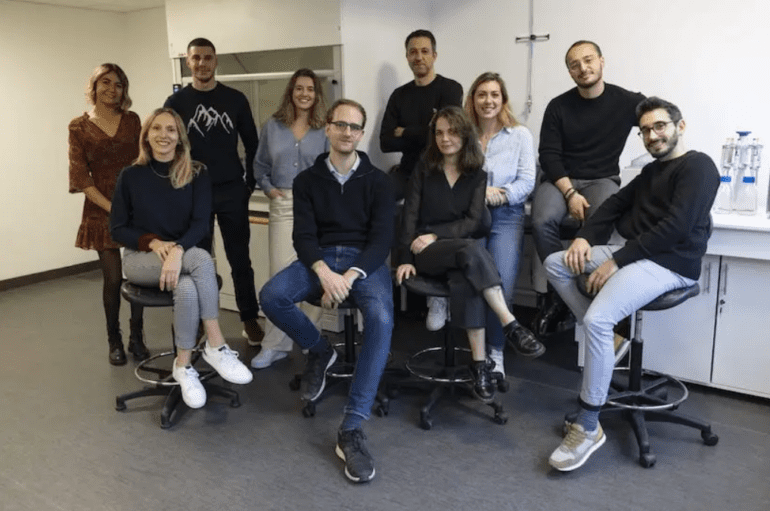TL;DR:
- Spore.Bio, a French startup, is using deep-learning algorithms to enhance contamination detection in food factories.
- Their innovative methodology involves shining optical light on surfaces exposed to clean and contaminated food and comparing the resulting datasets to identify contamination.
- The company has secured €8 million in pre-seed funding from notable investors, including LocalGlobe VC, EmergingTech Ventures, and more.
- Spore.Bio is developing a handheld device for on-site pathogen detection, providing real-time insights into bacterial threats.
- The technology employs laser-based spectral analysis and advanced photonic technologies.
- Regulatory challenges, including compliance with the “General Food Law” and ISO 16140 certification, are being addressed.
- Current industry testing methods involve delays of up to 20 days, while Spore.Bio promises almost real-time results.
- Deloitte estimates that downtime in the food and beverage processing industry costs approximately $50 billion annually.
- Spore.Bio’s innovative solution has the potential to transform food safety practices and reduce downtime significantly.
Main AI News:
In the fast-paced world of food production, maintaining a pristine environment is paramount to ensure the safety of consumers. Traditionally, this involved time-consuming microbiological monitoring, extensive hardware, and waiting for lab results. However, a groundbreaking French startup, Spore.Bio, is poised to transform this process using cutting-edge deep-learning algorithms.
Spore.Bio has pioneered a novel pathogen-detection methodology that relies on optical technology. By illuminating surfaces previously in contact with clean and contaminated food, it meticulously analyzes the resulting datasets to identify any traces of contamination. This innovative approach has attracted substantial support, including €8 million in pre-seed funding led by London’s LocalGlobe VC, with participation from prominent investors such as EmergingTech Ventures, No Label Ventures, and more.
CEO Amine Raji elucidated their revolutionary method, saying, “We send light to the sample to take a sophisticated snapshot.” These images go beyond human perception, thanks to machine learning models that discern the spectral characteristics of bacteria. Building this capability necessitates a vast dataset comprising samples of both contaminated and uncontaminated foods and beverages, a resource Spore.Bio has garnered through collaborations with major manufacturers worldwide.
While Spore.Bio is still in its early stages, the funding will support the development of a handheld device designed to streamline contamination monitoring. Raji explained, “Our goal is to create a hardware device capable of immediate pathogen detection directly on the factory floor. This portable tool will facilitate real-time quality sampling, providing invaluable insights into potential bacterial threats within the facility.“
This technology employs laser technology, emitting specific wavelengths within the UV-Infrared range that trigger unique reactions in bacteria. Despite Raji’s discretion regarding further technical details, he hinted at advanced photonic technologies being the foundation, backed by pending patents.
Yet, bringing such a device to market involves overcoming regulatory hurdles, especially in the tightly regulated European food industry. Compliance with the “General Food Law” and ISO 16140 certification for microbiological testing poses a significant challenge. Nevertheless, Spore.Bio is already in collaboration with certifying bodies to navigate this landscape, assuring that its product meets stringent standards for accuracy in bacteria and pathogen detection.
The potential for disruption in this industry is evident. Current testing methods involve sending samples to offsite labs, resulting in delays of up to 20 days. Spore.Bio’s solution promises near real-time results, significantly reducing downtime for food processors. According to Deloitte, downtime costs the global food and beverage processing industry approximately $50 billion annually, making Spore.Bio’s innovation is a game-changer.
Although the product is not yet available, Raji revealed that Spore.Bio has a waitlist for its first prototypes, slated for global deployment next year. Competitors like U.S.-based PathogenDX have also made strides in this domain, underscoring the potential for innovation and growth in the field of food safety.
Conclusion:
Spore.Bio’s innovative approach to food contamination detection has the potential to revolutionize the industry by offering real-time solutions, reducing downtime, and improving food safety practices. This could lead to increased efficiency and cost savings in the global food processing market, making it a significant development to watch.

